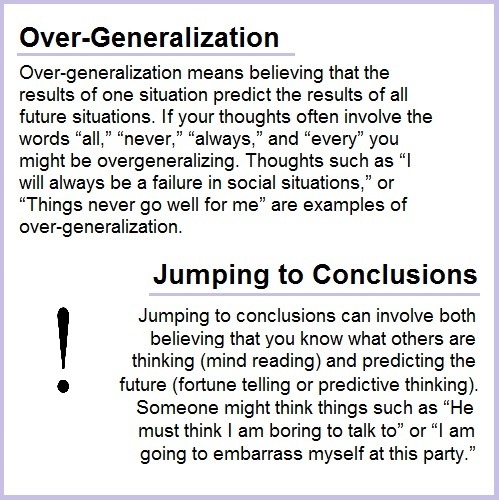actuallyadhd:chibinecco:actuallyadhd:thatquietanxietygirl:If you suffer from depression or anxiety,
actuallyadhd:chibinecco:actuallyadhd:thatquietanxietygirl:If you suffer from depression or anxiety, you may often struggle with distorted thinking. It’s best to understand the most common types of distorted thoughts so you can recognize the ones you experience the most, and doing so can help you stop those thoughts from occurring.To followers using screen readers: I am so sorry! I want to post this and I just cannot handle writing an image description for it. It’s a bunch of different kinds of distorted thinking that happen in OCD, depression, anxiety, and other mood and personality disorders. Here’s a link to a site where common cognitive distortions are explained in regular screen-readable text.—EliseSo… I had trouble reading this as the images, and hyperfocus kicked in, and so… now there’s a standard-text version for your reblogging/reading pleasure 8DTypes of Distorted ThinkingBlack and White Thinkingblack and white thinking means seeing everything in estremes; there is no room for middle ground and everything is seen as all or none. People are right or wrong; situations are good or bad.Mental FilteringMental filtering means only seeing the negative aspects of situations, or only seeing what is wrong with yourself. Someone might leave a party only remembering that she forgot someone’s name or that she spilled her drink.Over-GeneralizationOver-generalization means believing that the results of one situation predict the results of all future situations. If your thoughts often involve the words “all,” “never,” “always,” and “every” you might be overgeneralizing. thoguhts such as “I will always be a failure in social situations,” or “Things never go well for me” are examples of over-generalization.Jumping to ConclusionsJumping to conclutions can involve both believing that you know what others are thinking (mind reading) and predicting the future (fortune telling or predictive thinking). Someone might think things such as “He must think I am boring to talk to” or “I am going to embarrass myself at this party.”Emotional ReasoningEmotional reasoning is believing that if you feel somethign it must be true. Someone might believe that because she feels anxious, there is something in the situation to be feared. Emotional reasoning is irrational, feelings can have many causes and do not always reflect reality.PersonalizingPersonalizing involves blaming yourself for external events outside of your control. Whether you are partly to blame or not to blame at all, you believe that external events are entirely your fault. A musician might blame a poor musical group performance on his own mistakes.CatastrophizingCatastophizing means turning small problems into big ones or blowing things out of proportion. Someone might think that giving a poor presentation at work will mean that coworkers will dislike her and that she may lose her job.Shoulding and and MustingShoulding and musting is a type of black and white thinking. It involves thoughts such as “I must always do everything right” or “I should always agree with what people say.”LabelingLabeling is a form of over-generalization. We label when we make global statements about people or situations based on specific circumstances. Labeling is unhelpful when evidence to contradict the global statement is ignored. Someone might label herself as “boring” despite evidence to the contrary.Magnification and MinimizationPeople with anxiety or depression generally have a habit of magnifying the positive attributes of others and minimizing the positive attributes of themselves. People with this thought pattern do not recognize their own good qualities and discount the bad qualities of others.How to Stop Your Distorted ThoughtsKeep up a positive attitude. no matter what’s going on in your life.Stay in the moment. Think about the now. You are where you are and you are only wasting time if you are focusing on the past or future.Be controlling. You can control the way you perceive the situation and the world around you. It may not be easy, but it’s possible.Be aware of when you are feeling when you are thinking. Sit with your emotions and figure out why you are having them. Once you recognize the distortions and can identify them, you’ll be more unlikely to be dismissive of your reactions.OMG, thank you, chibinecco! This is awesome!—Elise -- source link
Tumblr Blog : thatquietanxietygirl.tumblr.com
#distorted thinking







